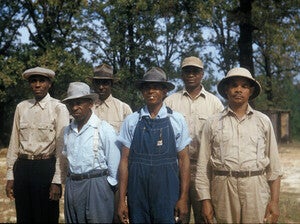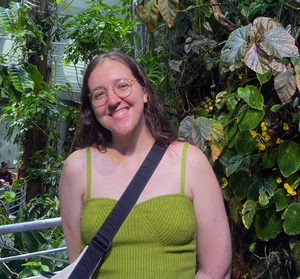Recently, a collection of reproduced documents from the Tuskegee Syphilis Experiment became available as a digital collection through the National Library of Medicine. The USPHS Untreated Syphilis Study at Tuskegee is notorious for its utter lack of ethics. It started in 1932 and initially involved 600 Black men (399 who had syphilis and 201 who did not). One commonality between all 600 men was that they were not provided enough information to give informed consent. Researchers told the patients they were being treated for “bad blood,” a term used in Macon County, Alabama, at the time to describe several conditions, including anemia, fatigue, and syphilis. In exchange for participating in the study, the men received free medical exams, meals, and burial insurance.

This experiment went on for 40 years. By 1943, penicillin was a known treatment for syphilis and was becoming widely available. However, no participants in the study were offered this treatment, resulting in anywhere between 28 and 100 deaths. This experiment was not ended by a sudden moral reckoning from the government researchers but when Jean Heller of the Associated Press broke the story in 1972. This article resulted in the Assistant Secretary for Health and Scientific Affairs appointing an advisory panel to review the study, which determined that the entire experiment was unjustified because the results were “disproportionately meager compared with known risks to human subjects involved.”
In 1951, Henrietta Lacks had her cervical cells harvested from doctors without her knowledge.. She started to feel pain in her abdomen and abnormal bleeding, so she saw a gynecologist at Johns Hopkins Hospital who discovered a mass on her cervix. Doctors removed the tumor but also sent a sample to a lab for research without her consent before treating her for cervical cancer. Most cell cultures die quickly in the lab; however, Lacks' cells persisted and have been replicated infinitely since. The same properties that made her cells a miracle to researchers also made them lethal to her. Mere months after her diagnosis, she died from cervical cancer and was buried in an unmarked grave.
Unlike the Tuskegee Syphilis Experiment, Lacks’ cells contributed to major medical advances leading to the creation of the polio vaccine, treatments for HIV, and cancer and fertility research and her cell line is still used in research institutes worldwide. However, her cells were taken without her consent, and research continued to be done with her cells after her death without her family’s consent for decades until 2013, when an agreement was finally reached between the NIH and the Lacks family.
Open science is “the principle and practice of making research products and processes available to all, while respecting diverse cultures, maintaining security and privacy, and fostering collaborations, reproducibility, and equity.” Open science extends the principles of openness to the whole research cycle, increasing the efficiency and quality of research, enabling more innovation, and fostering greater collaboration as early as possible to make systemic changes to how science and research are done.
While open science has many benefits to the researcher, such as increasing the visibility, reuse, citations, and impact of your work, it also helps hold researchers accountable and invites critique. The UNESCO open science recommendations provide guidance for ensuring openness in research while protecting the privacy and safety of participants. Transparency and openness are key values to ethical research, and open research describes a variety of practices that help facilitate better conduct in research and communication of its outputs. When methodologies, data and results are openly shared with others, it is possible to confirm the reliability and validity of the results, opening the research up to scrutiny and working to rebuild trust in the process and its outcomes.
Open science is more than just ensuring that your research is findable, accessible, interoperable, and reusable. Open science does more than allow for universal participation or even accelerate advancements. It is also a movement created in response to an utter lack of ethics from researchers for decades. Opening up your research not only creates a society where access to knowledge is equitable, but it also helps rebuild and establish trust in the scientific community. There is a long history of researchers taking advantage of marginalized people. While open science cannot right those past transgressions, it is a step in the right direction and helps people see that researchers are willing to hold themselves accountable.
